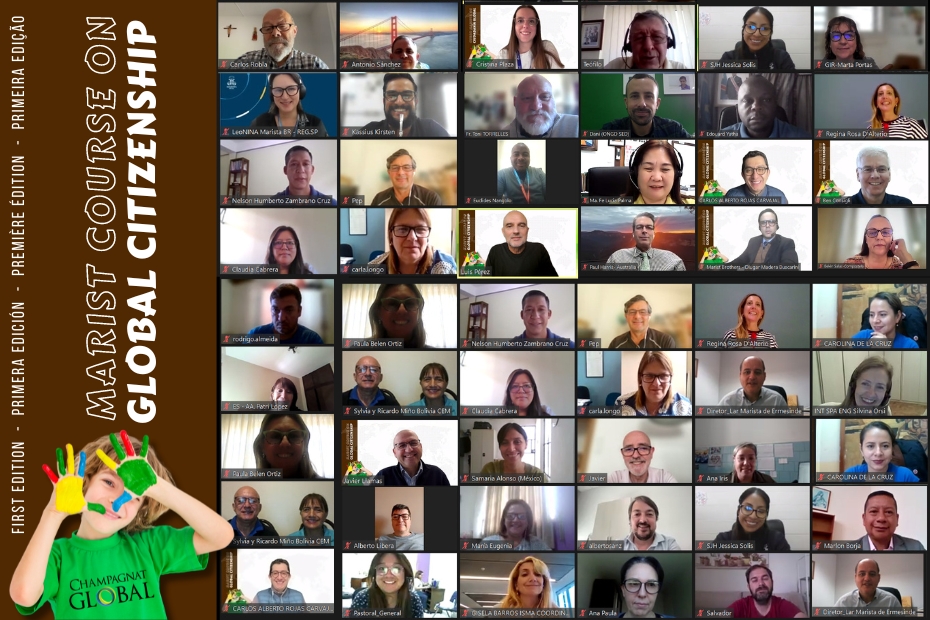Last Thursday, May 9th, we held a webinar to mark the closing of the Global Citizenship mooc course that a pioneering group of people have been doing during these months.
At the beginning of the meeting, the executive secretary of Champagnat Global, Javier Llamas, welcomed the participants and highlighted the importance of global citizenship in the framework of education.
Brother Ben Consigli, General Councillor, congratulated all the participants on completing the course. He emphasised that the importance of forming well-rounded citizens is essential to the global Marist family and “has a crucial role to play in promoting peace in today’s interconnected world.
“As you go through this course I invite you to continue to embody the values of global citizenship in your daily lives: volunteering, social justice education, etc. Being a global citizen is not just about having knowledge but knowing how to apply that knowledge to make a change in the world, and everyone who attends has that power to change the world. St. Marcellin’s mission guides us as we strive for a more inclusive, just and sustainable world”, he said.
Afterwards, Br Alberto Rojas, Provincial of Norandina, touched on the origins of the course, referring to it as “a dream come true since in 2018 we began to dream of launching the Marist global network of schools”.
“We thought of a programme that could be harmonised in all the schools and the theme of global citizenship was the definitive one”, he added.
Br Alberto explained that the perspective was to explore a theme in Marist schools around the world and to find out what the state of global citizenship is in the world. The aim of the research was to propose recommendations for strengthening global citizenship in schools, as well as to find out how we can recognise and strengthen the theme of global citizenship in our schools. A theme that has also been referred to in the document ‘In the Footsteps of Marcellin Champagnat’.
Through quantitative and qualitative data, concrete conclusions are being sought. Some more specific details of the research are that out of more than 100 people carrying out the research, more than 70 have already completed it.
A total of 55 questionnaires have been fully completed. In South America and the Caribbean with 298 schools, 31 respondents (56.4%), in Europe with a total of 99 schools, 16 respondents (29%), in Africa 78 schools, 5 respondents (9.1%), in Asia 16 schools, 1 respondent (1.8%) and in Australia 75 schools, 2 respondents (3.6%). This makes a total of 566 Marist schools involved in the research.
The survey aimed to find out what we think about the areas of learning that UNESCO says global citizenship should be about.
According to the results, Marist educators feel that we are working on global citizenship, however, many feel that we need to do more work and propose some items to promote it. Some of the contents with which we are now promoting global citizenship are human rights and tolerance and discrimination. However, other topics such as wars or refugees are the least popular. It seems that everything related to culture is also another strong point.
After the presentation of the research, the attendees had about 10 minutes to answer an evaluation survey about the mooc course in order to receive feedback before the course is open to everyone in the coming months.
The entire Champagnat Global team would like to express our sincere thanks to all the participants of this pioneering group.
Follow all the news and information about global citizenship in our Agora group.
